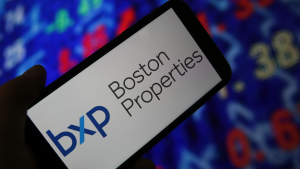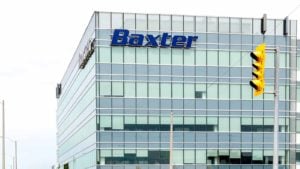It’s been a month since Boeing (NYSE:BA) CEO Dave Calhoun announced that he would step down at the end of 2024. While his departure wasn’t termed a “firing,” there is no question Calhoun’s name would have been on a list, if there were one, of CEOs that need to be fired.
The embattled company was forced to shake up management to appease shareholders. As the aircraft manufacturer struggled with quality control issues, 33% of its market capitalization has disappeared year-to-date and 55% over the past five years.
In cases such as Boeing, it’s blatantly apparent that something had to give. It’s not as clear in other instances, and some situations require a coin toss.
In the end, CEOs are paid to perform. If they don’t, whether they have an opportunity to fix things or not, they have to go. Waiting prolongs the misery.
Who else should be on a list of CEOs that need to be fired?
Here are my three choices.
David Zaslav, Warner Bros. Discovery (WBD)

David Zaslav is the CEO of Warner Bros. Discovery (NYSE:WBD). Zaslav has been CEO of WBD and its predecessor, Discovery Communications, since 2006. The CEO’s total compensation in the past three years is $335.6 million. WBD stock is down 65% over the past five years.
David Zaslav is arguably the most overpaid executive in America. The value destruction he achieved as head of Warner Bros. Discovery is monumental.
Of course, he needs the dough. In 2020, he spent $16 million acquiring the former home of Robert Evans, who was head of production for Paramount Studios when he produced The Godfather in 1972.
“At Zaslav’s urging, the city of Beverly Hills granted Woodland historic landmark status in 2021. Since then, he’s been pouring a not-insignificant sum into a full restoration of the property,” stated The Ankler in February.
It boggles the mind why any investor would buy WBD shares.
InvestorPlace’s Faizan Faroo que believes it could make you richer than your wildest dreams, though I don’t see how. Its net debt of slightly less than $40 billion is nearly double its market cap.
It’s time someone younger (he’s 64) and cheaper took the reins.
Owen Thomas, Boston Properties (BXP)

Owen Thomas is the CEO of Boston Properties (NYSE:BXP). Thomas has been CEO of BXP since 2013. The CEO’s total compensation in the past three years is $39.0 million, while BXP stock is down 55% over the past five years.
I’ve recommended the owner and manager of premier U.S. office space in the past, most recently in Jan. 2023. I said it was a REIT (real estate investment trust) that could deliver outsized returns in 2023.
Given the collapse of the office market, its shares traded at their lowest level in a decade. Since then, its share price is down 14%.
By June 2023, I’d given up on BXP, recommending that it and two other office REITs be sold before the commercial property crash. Shark Tank star Barbara Corcoran’s comments at the time convinced me that things wouldn’t improve soon.
Nine analysts out of the 23 that cover its stock rate it a buy. If it didn’t own some of the finest office properties in the country, I’m sure that number would be lower. With a target price of $71.50, analysts see some upside.
While much of the market cap retreat had little to do with Thomas’s ability to run the business, he has been the big boss for over a decade. Its shares have lost 38% of their value.
What has he done for BXP lately?
José Almeida, Baxter International (BAX)

José Almeida is the CEO of Baxter International (NYSE:BAX). Almeida has been CEO of BAX since 2016. The CEO’s total compensation in the past three years is $43.0 million. BAX stock is down 47% over the past five years.
On July 25, 2023, Baxter amended its terms of employment for its CEO. It replaced his original employment letter from October 2015 and his updated terms of employment from March 2020.
He can use the company jet for 50 hours of personal use per calendar year as part of his contract. Based in Illinois, it’s a three-hour flight from Chicago to West Palm Beach. He and his family could take eight round trips to Florida before he’d have to pay a cent for his flights.
Earning $43 million over three years seems like an excessive perk, especially since Baxter stock has lost 50% of its value in the 8+ years he’s been CEO.
It’s trying to spin off its renal care and acute therapies units, it first announced its intentions in Jan. 2023, which if completed, will be named Vantive.
However, it’s now talking with several private equity firms about selling Vantive instead. While a sale probably makes more sense given the existing competition, not to mention Baxter’s inability to generate gains for its shareholders suggests an IPO is no sure thing.
Too little, too late.
On the date of publication, Will Ashworth did not have (either directly or indirectly) any positions in the securities mentioned in this article. The opinions expressed in this article are those of the writer, subject to the InvestorPlace.com Publishing Guidelines.
